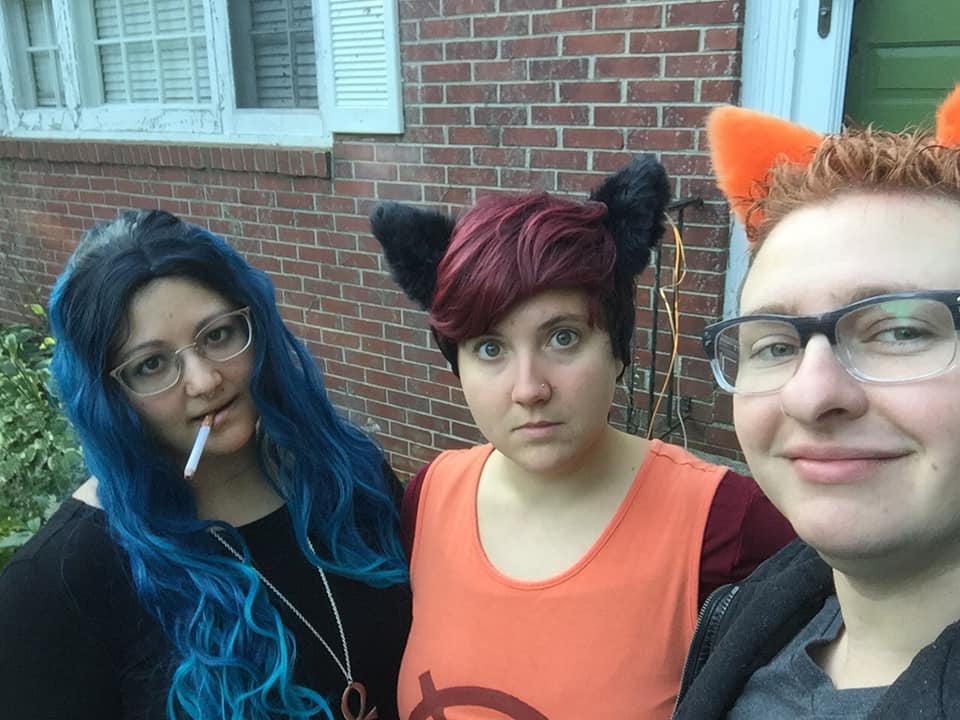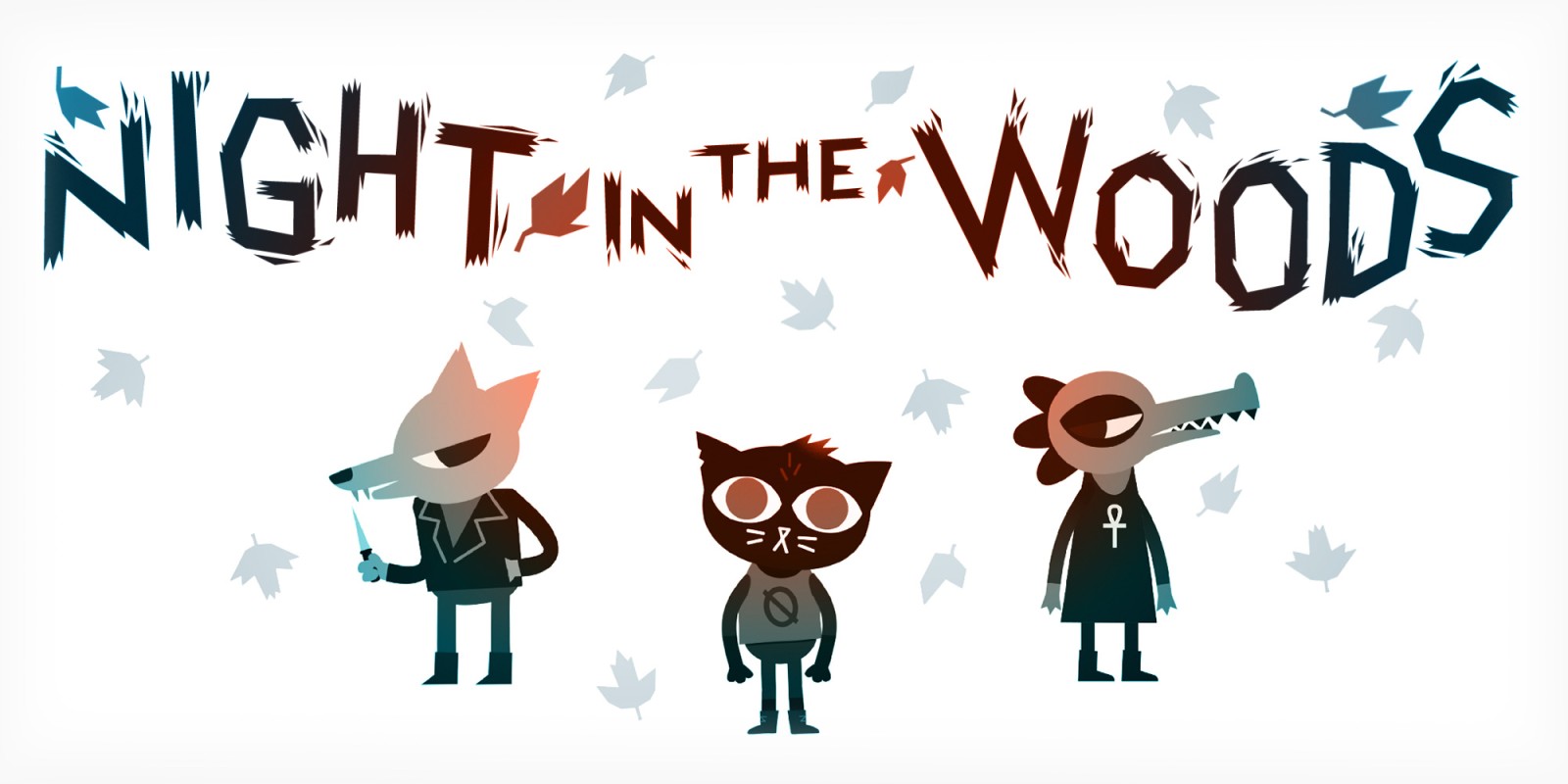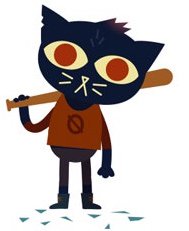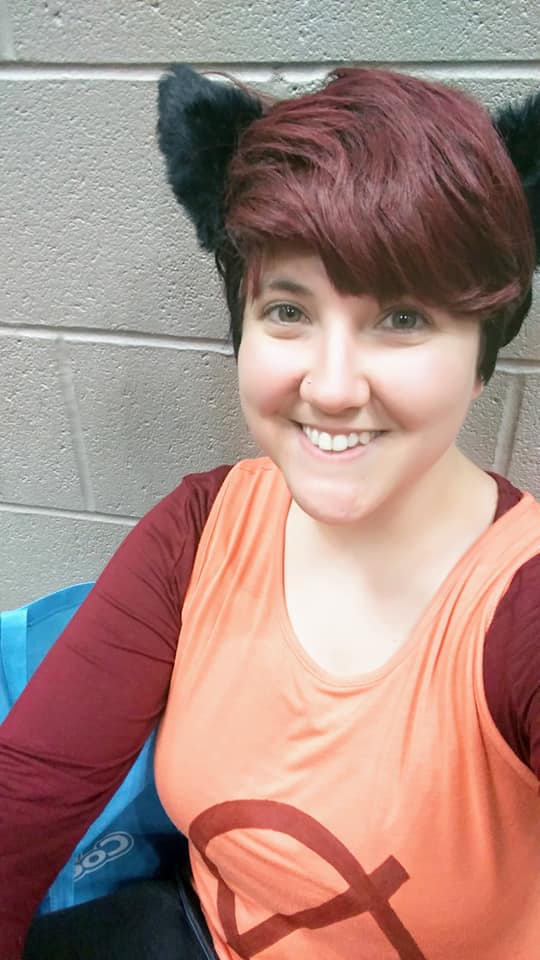One year after my first foray into Dungeon Masterdom and with much knocking on wood and crossing of fingers, I finally hosted the 3rd(ish) session of our campaign.
Any tabletop gamer will tell you that the most dreaded adversary the players will face is the Almighty Calendar. Even so, three sessions in the course of a year is a little extreme. Of course, it wasn’t merely an issue of scheduling. The night of our first game, a shocking secret came to light, one that completely rewrote my future.
Pretty high drama even for Dungeons & Dragons, amirite?
The next few months were extremely emotional and confusing for me. To cling to my gaming theme here, I was desperately trying to play an unwinnable game governed by a Game Master who had little interest in the rule book and whose primary goal was to convince me to give up on the game by myself.
But I’m a tenacious little scamp, and I didn’t want to give up. I’d vowed to play that game, nurture that game, celebrate that game’s anniversary, maybe have a family with that game… Right, enough of the strained metaphor, you get it. The point is this: I’d committed my heart and my future to someone who no longer felt committed in return, and who was hoping she could shake me off so her conscience wouldn’t have to carry the guilt of leaving me herself.
Obviously, I’ve simplified and vague-ified an incredibly complex situation. However, the time has passed for me to keep defending someone who spent the better part of a year gaslighting and villainizing me for the preservation of her own ego.
Because that’s the truth of it. Whether with malicious intent or not, I was wronged by the person I trusted most, around whom I was my most authentic self. I acknowledge the fallibility of all individuals involved, but that doesn’t invalidate the mistreatment I experienced.
It is painful for me to write it out like that. To state unequivocally that I was treated unfairly at best, outright cruelly at worst. I have spent eight months scrutinizing every shortcoming within myself, every emotional reaction, every selfish impulse, every unkind word that I unleashed during the slow and torturous death of my marriage. I stood as far back from my own life as I could to analyze my behavior at a cold, impersonal distance. I agonized into the wee hours of the morning about whether I could have handled anything differently, trying to figure out if I was the toxic bad guy in someone else’s fairy tale.
Here I am on the other side of that process, near what would have been my third wedding anniversary, with this knowledge: I did the best that I could and the best that could be reasonably expected of anyone undergoing the trial I was going through. I’m far from perfect, but I fought hard, right up to the end, and I’m satisfied with my efforts.
I’m not all the way done processing what happened, and I’m still working out the balance between kindness to those who have hurt me and kindness toward myself, but I’ve made enough progress that I finally feel like I can open myself back up again in order to:
Shine
Which brings me back to D&D. It takes a certain measure of confidence to tell your group of friends: “HEY. I’m going to lead us all in an elaborate, dice-based storytelling activity because I think my Fantasy Setting and Vague Plot are so worthy of attention that I want you to make up characters for it and then play out their adventures under my omnipotent oversight.”
I am very exposed as a Dungeon Master. I screw up rules and forget important details. I have to think on the fly and some of those flying thoughts are Not Great. For the duration of each hours-long session, I am constantly performing, which makes my ego constantly vulnerable.
Why would I do that to myself? A solid 70% of my blog entries talk about my life-stunting fear of failure. I hate creating opportunities to display my flaws, and yet at least once a month, I run a game that I still don’t fully understand and which I will definitely mess up multiple times.
But I love D&D, and despite my shortcomings, I’m a pretty decent DM. At least, that’s the feedback that I’m getting from my players, and I trust that they’re either being honest with me or are lying to me because they love me enough to support my nonsense even if I’m terrible at it. I truly can’t complain about either option!
The thing is, playing this game with my friends fills my chest with light. A golden glow expands within me every time I do something I love with the people I love, whether it’s D&D or hiking or perusing antiques. I get to shine for a moment, and it feels like being in love.
For months, I’ve been scared about my capacity to experience that kind of emotion again. I had such a deep well of love in me before, and the night I of my breakup, it all drained out. I felt it so physically: broken glass ribs and a black hole heart, a sharp void where all my softness was supposed to be.
I never wanted to feel like that again, but I also wanted to get my warmth back. I compromised by being extremely forthright with everyone, thinking that I was taking away their ammunition and softening the sting of their inevitable abandonment.
I wasn’t quite as blatant about it, but my method was basically this:
“Hi! You may know me as your friend or tolerated acquaintance Abi. I struggle to process words during phone calls, I thrive in clutter like some kind of trinket-goblin, and I only found out this year that vermilion is a shade of red, not green (and I looked it up just now to make sure!). So when you get sick of me in a couple years despite your promises of affection, don’t pretend you didn’t know what you were getting into, because I put it all right there on the label, like a list of allergens on a box of Cheez-Its!”
Like, the number 4 is soft-spoken and friendly and the best buddy of 5, who is really bold and a little cocky but essentially a good dude.
What started as a self-effacing method of defense, however, became something bigger. I went from showcasing my faults to deliberately engaging in the things I enjoy, even at the risk of exposure and embarrassment. I wanted the people I cared for to see all of me, to get a full picture so they could decide for themselves whether our relationship was tenable.
And it felt good. Boldly dressing up for conventions and fairs, traveling to visit friends I’d fallen away from, just being my loud, enthusiastic, hyper-expressive self as fearlessly as I could manage… Everything fueled the fire in my chest, and that fire began to cauterize my wounds.
There is now more warmth than ache in my soul. I am surrounded by people who know my faults and love me nonetheless. I still sometimes worry about being “too much” or “not enough,” but that worry doesn’t cripple me anymore, and I’m fortunate to have folks in my life who will listen to my insecurities with kindness and patience instead of anger and exasperation.
I hope that by allowing myself to feel that shiny joy inside of me again, I can help others access their own joy. I want to keep my spark alive even when life isn’t all moonbeams and rainbow sprinkles. I want to be a unicorn in a herd of unicorns, watching my loved ones shine as they unabashedly pursue their passions and open their hearts to each other.
There’s always a chance that I’ll experience more devastation by letting my walls down like this, but now I know that the glow never really disappears. The ember endures, and it can always be coaxed back to life.
I’m tired and battered but still shining, and I have one last Year of the Unicorn lesson in my heart. It’s been my biggest challenge, but I’m almost there.
Soon.
Header photo by Magda Ehlers from Pexels










